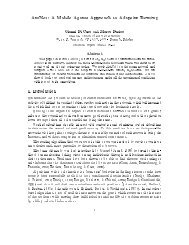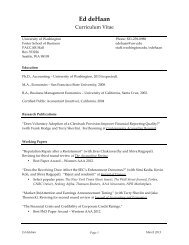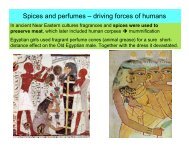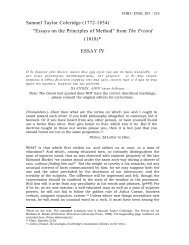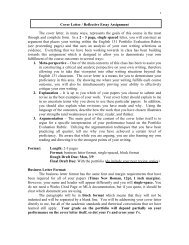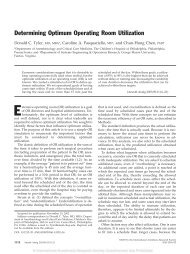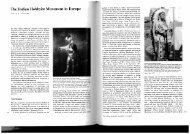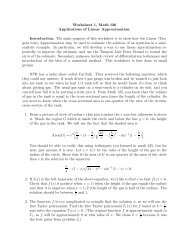The Lasting Presence of Gerard's Herball
The Lasting Presence of Gerard's Herball
The Lasting Presence of Gerard's Herball
Create successful ePaper yourself
Turn your PDF publications into a flip-book with our unique Google optimized e-Paper software.
infusion <strong>of</strong> certain plants in hot water. Why be at the expense <strong>of</strong> securing a<br />
learned doctor? (p.103)<br />
People experimented, talked about new knowledge and experience, and probably shared<br />
any written information available, either through conversation or by passing a book<br />
around. Such openness to learning was a necessary consequence <strong>of</strong> living conditions at<br />
the time. Indeed, apothecaries like Johnson may have gathered information from their<br />
rural, or urban, herbalist patients. Gerard himself, as head gardener for Lord Burghley,<br />
worked with laborers who may have known as much about plants as he. Wright (1935)<br />
suggests that inexpensive herbals were common household books, studied with a<br />
“diligence” comparable to study <strong>of</strong> the Bible (p.574).<br />
Openness to learning is also evident in 17 th century urban culture. Peter Burke<br />
provides a vivid description <strong>of</strong> London in chapter 1 <strong>of</strong> Popular Culture in Seventeenth-<br />
Century England. London was a somewhat unusual European city during this period.<br />
Almost twice the size <strong>of</strong> other large cities (with a population <strong>of</strong> 200,000 people), London<br />
was a diverse mix <strong>of</strong> classes, nationalities, and religions. Many people immigrated to<br />
London because the city was Protestant and relatively tolerant. More than half the<br />
population lived outside the city proper.<br />
<strong>The</strong> traditional calendar festivals (and fairs) were open to all and did not revolve<br />
around religious practice. Such festivals ran continuously for days and shops remained<br />
open. Burke suggests that the religious festivals were in decline, allowing popular<br />
culture to flourish (because “unlike learned culture [popular culture was] open to all,”<br />
p.38). He notes that printers served as “intermediaries between learned and popular<br />
culture” because <strong>of</strong> their involvement in the craft <strong>of</strong> putting together books (p.52). Thus,<br />
14



